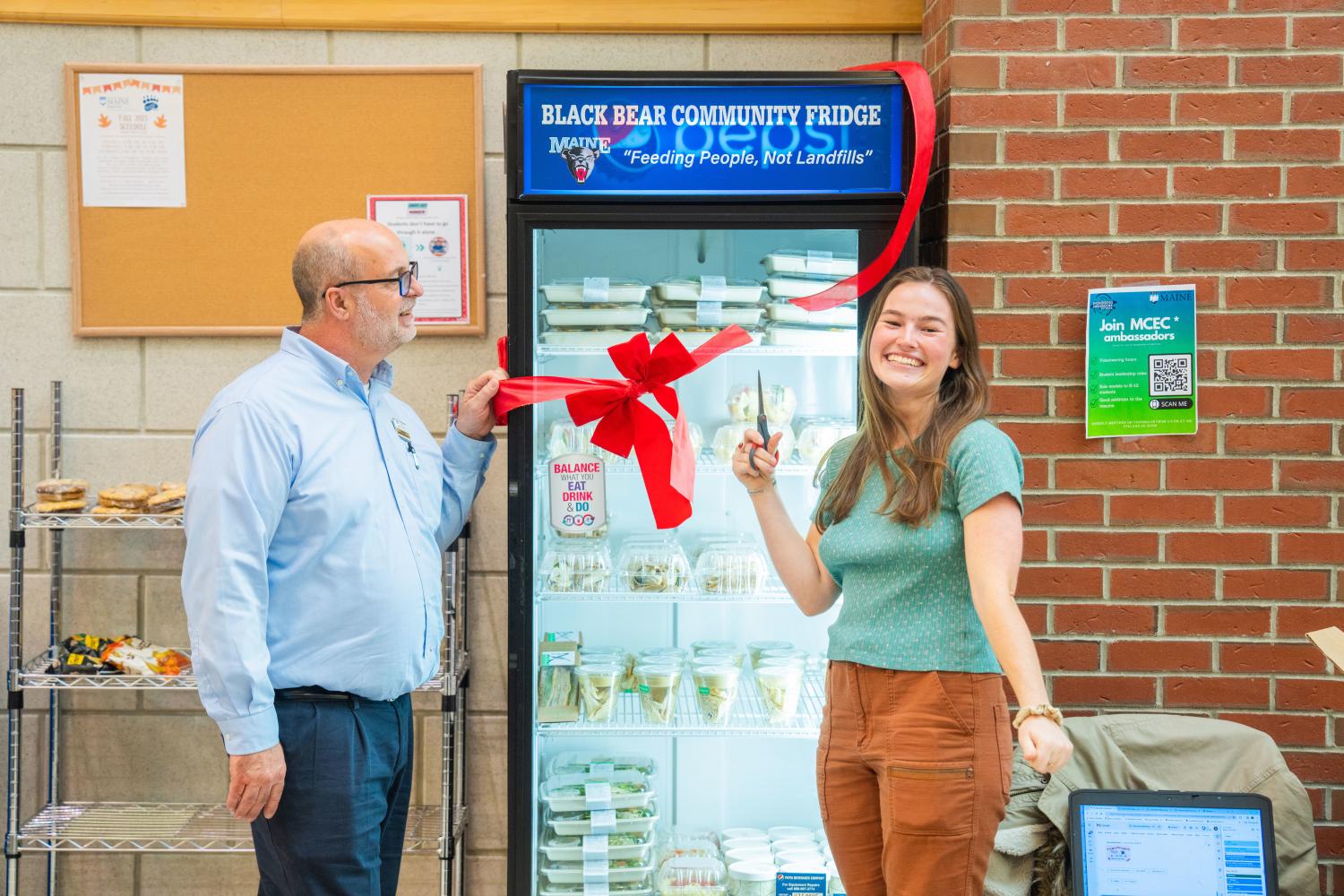
Fighting Climate Change with Food: Kate Flynn
Thanks to UMaine senior Kate Flynn, 22, and the work going on at the Senator George J. Mitchell Center for Sustainability Solutions, there’s a popular new hangout on campus that’s created a tasty way for students and staff to help mitigate climate change.
The new Community Fridge near the Bear’s Den, which opened in October, offers up free food for anyone who wants or needs it. It’s stocked by UMaine’s dining partner, Sodexo Dining Services. Commonly stocked items include unsold sandwich items, baked goods, and other food options that would otherwise go to waste, in a location that is convenient to students commuting to and from school at any hour. This can be particularly beneficial to students unexpectedly on campus late or passing through the student commuter hub on their way in or off campus.
“All this food was previously just going to a landfill. They (Sodexo) were interested in getting more involved on campus,” Flynn said. “They’re an incredible partner in bridging the food access gap. This is the best way to redirect food back into the community it’s meant to feed by meeting people where they are. We want to feed people, not landfills.”
Flynn, a senior studying political science, inherited the pilot from a previous intern at the Senator George J. Mitchell Center for Sustainability Solutions, and spearheaded the fridge effort to reduce food waste and feed the campus community as part of her internship with the center.
“With data showing that over 30% of the food produced in the U.S. is never eaten, a community fridge is a great solution for redirecting potentially wasted food to feed people. By decreasing the amount of perfectly good food thrown away, we also decrease the methane emissions that food rotting in landfills produces. We can take care of each other while also taking care of the planet,” says Flynn.
The fridge and the adjacent mini-pantry of shelf-stable food next to it now serve as a common gathering spot for friends, and an informal message board, and is simultaneously helping change the narrative about student hunger and food loss. Food is monitored and labeled, and the location lends itself to providing access to anyone who may otherwise be too reluctant to ask for food assistance.
“People will just go with their friends and say ‘Hey, let’s go get a free brownie.’ Part of the beauty of it is that it’s not limited to a volunteer running it,” said Flynn. “That allows it to be easily accessible and open every day. Plus, no one is watching, so it takes away the stigma. Typically by 3 pm each day, the fridge is emptied out.”
Her work on the fridge has broadened her knowledge of food systems and how waste contributes to climate change overall, and hopefully to those who utilize the community fridge.
“This was about food security. That’s what motivated me originally. And then I got roped into this whole new world of a broken food system,” said Flynn. “Instead of looking at a banana as a dollar amount, you think about it in terms of the farmers, fertilizer, water, soil, CO2 emissions, and everything else involved to get it to your kitchen table. It makes you think more about it’s worth than just the current grocery store price of a banana.”
When she graduates this spring, she hopes the project will continue to grow and provide an approachable way for younger generations to have a positive impact on climate.
“It’s been a really uplifting and eye-opening experience,” said Flynn. “Food is for everybody.”